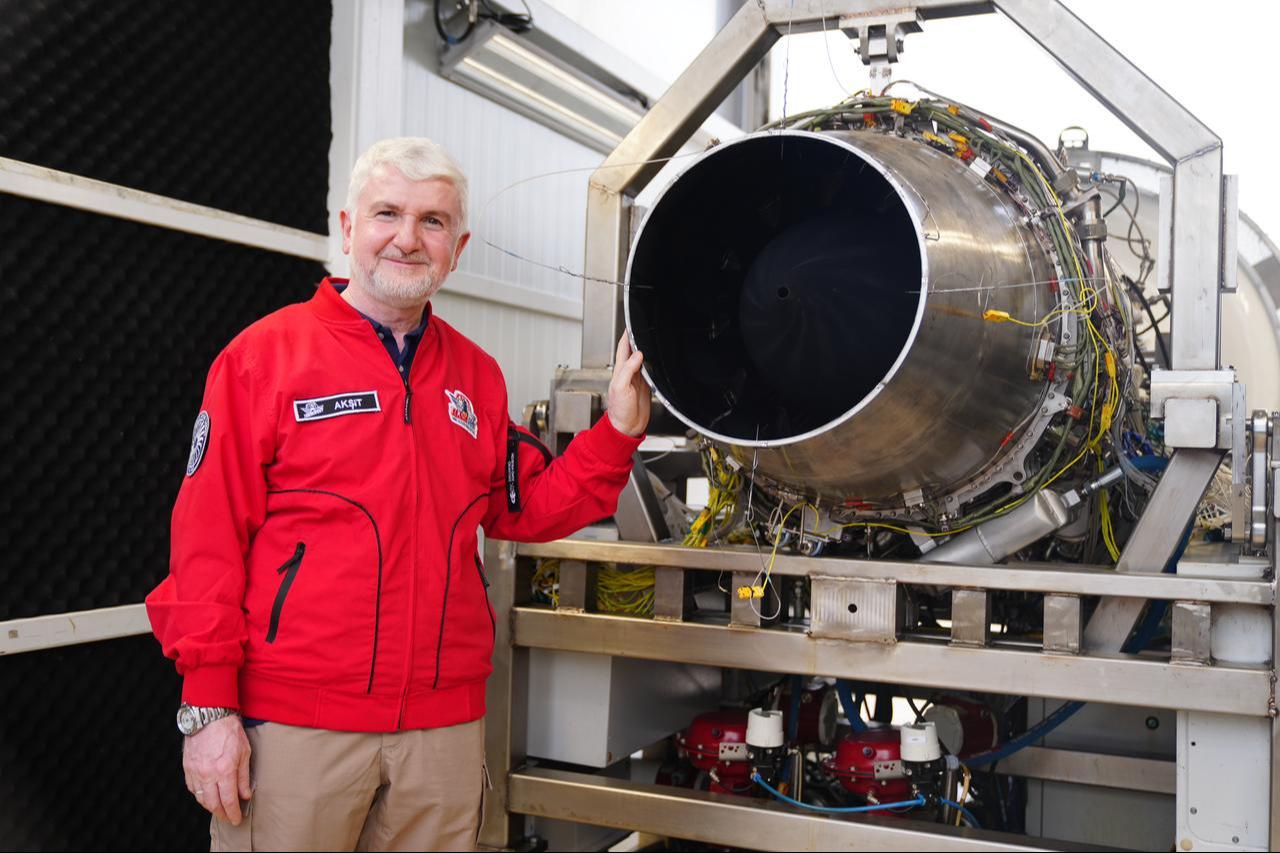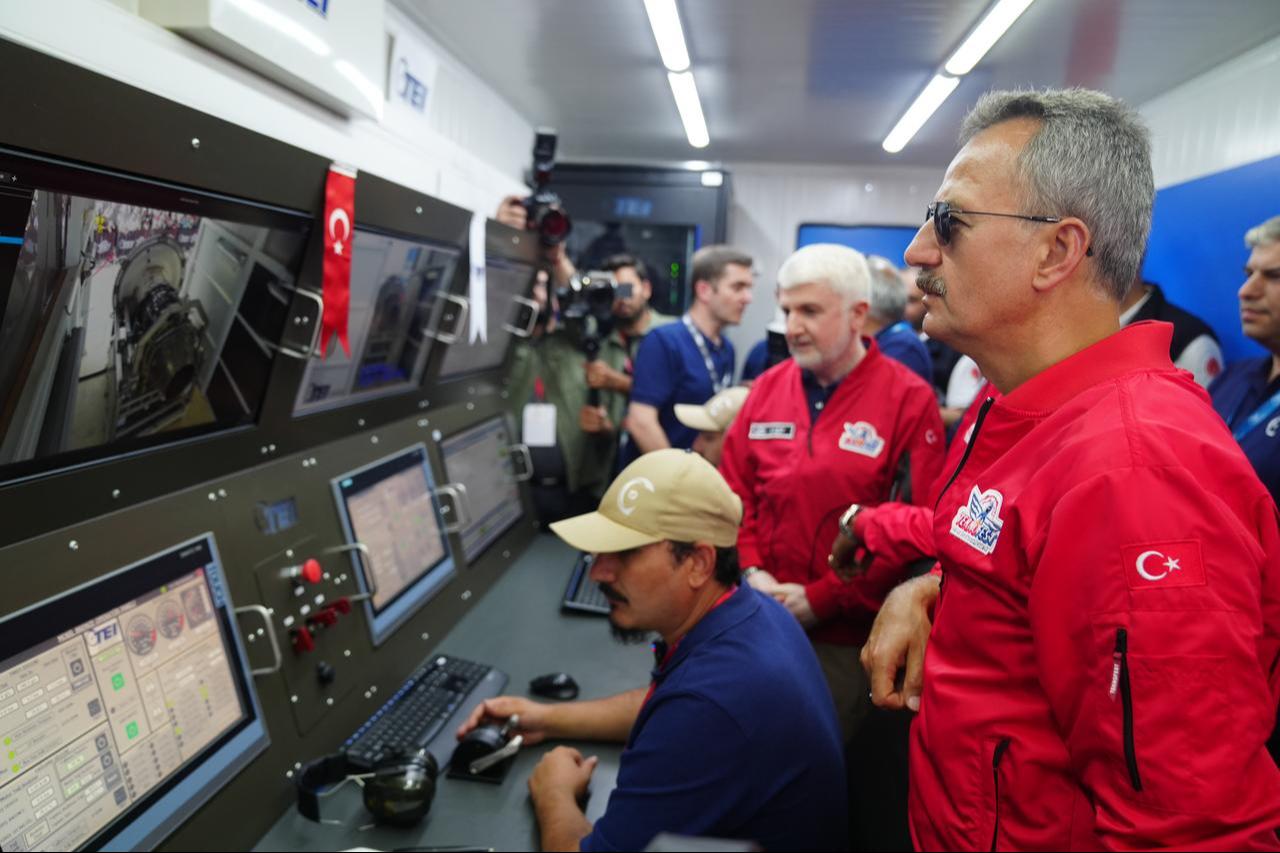TUSAS Engine Industries (TEI) conducted the first public test of its domestically developed TF6000 turbofan engine at Teknofest 2025, marking a significant milestone in Türkiye's aviation industry.
The TF6000, designed and manufactured entirely in Türkiye, was operated at a mobile test brake facility during the country's premier technology and aviation festival at Istanbul Ataturk Airport on Wednesday.
The five-day event is organized by the Turkish Technology Team Foundation and Türkiye's Industry and Technology Ministry.
"We would like to put forward our technical capability and technological level at Teknofest," TEI General Manager Mahmut Aksit told state-run Anadolu Agency (AA), expressing gratitude to his team for their long journey in technology development.

The public demonstration represented more than a showcase event. Defense Industry President Haluk Gorgun confirmed the test achieved expected performance levels while conducting crucial sea-level testing.
"Eskisehir is approximately 800-900 meters altitude. This is a sea-level test," Gorgun explained, adding, "In a sense, they both made a demonstration and conducted a real sea-level test."
The engine will continue daily operations throughout the festival, allowing young technology enthusiasts to witness advanced defense industry capabilities firsthand. While the TF6000 undergoes maturation testing for unmanned aerial vehicles like Türkiye's Anka-3, TEI prioritizes development of the TF10000—an afterburner-equipped variant delivering 10,000 pounds of thrust.
"Our aircraft needs an afterburner, a motor capable of reaching higher speeds," Aksit said.
"The TF10000 is this engine with an afterburner added," he noted.
The TF10000 will power high-speed, stealth-capable aircraft like Kizilelma. Aksit revealed successful afterburner tests on smaller demonstration engines, stating, "We have made and operated an afterburner in Türkiye. Now we are in the implementation phase at the TF10000 scale."

TEI expects the TF10000 to enter service within "a few years," significantly faster than typical engine development cycles of 10 years or more, according to Aksit.
"The European Union's joint engine, made by companies with 100 years of engine-making experience, will take 17 years," Aksit noted, adding, "We committed to not taking that long."
The company demonstrated robust production capabilities, currently manufacturing two engines monthly with the capacity to double output based on demand. TEI has already begun delivering the PD200, an upgraded version of its PD170 engine, to Baykar for flight testing.
Looking ahead, TEI continues development of the TF35000, specifically designed for fifth-generation fighter aircraft, including the KAAN platform.
"The TF35000 will be a special engine designed for a fifth-generation fighter aircraft," Aksit confirmed, adding, "It won't be a directly scaled version of the TF10000 but will include additional technologies."
The company also revealed ongoing motor development for heavier helicopter classes beyond the current Gokbey platform, though specific classifications remain undisclosed.
Following sea-level tests in Istanbul, TEI plans high-altitude testing at Türkiye's highest observatory in Erzurum at 10,000 feet elevation. The comprehensive testing protocol ensures reliability under extreme conditions and varying atmospheric pressures.
"This is really Türkiye's first fighter aircraft engine," Aksit emphasized, highlighting the strategic importance of indigenous engine development for national defense capabilities.